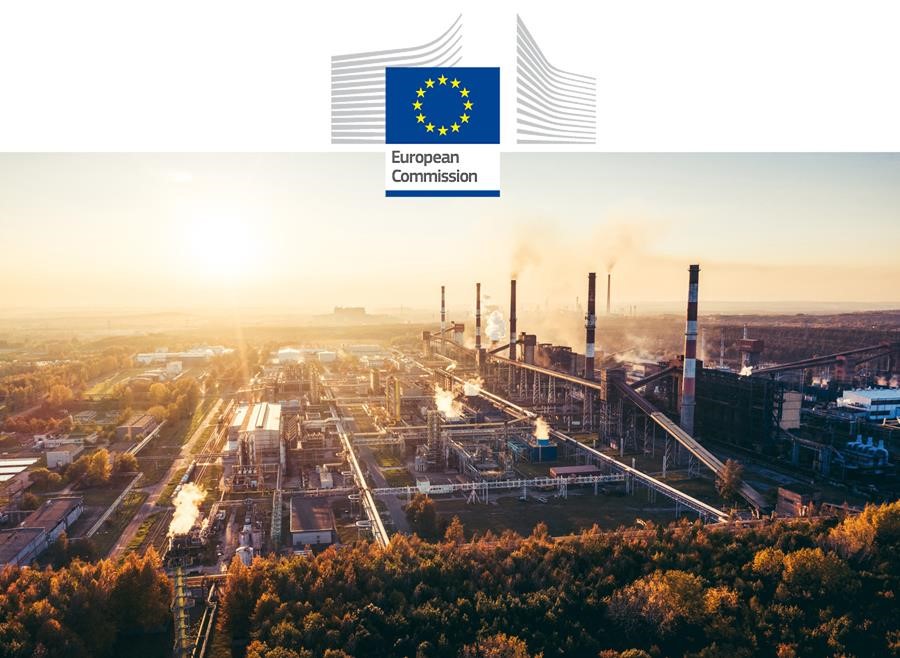The conference “Green Taxation to build fairer, more resilient economies” will take place online on 4 February 2021. Organised by the European Commission, the conference is based on emerging findings from a study funded by the European Parliament and being undertaken for the European Commission.
The conference will be of interest to Ministers and decision makers in EU Member States’ Environment, Finance and Economics Ministries, as well as stakeholders in business and civil society. We look forward to welcoming a wide and diverse audience.
Registrations are closed. You can watch the event live.
Join the discussion on Twitter using the hashtag #greentaxation.
- green economy
- Thursday 4 February 2021, 09:30 - 11:30 (CET)
- Live streaming available
Practical information
- When
- Thursday 4 February 2021, 09:30 - 11:30 (CET)
- Languages
- English
Description
During the event, we will share new evidence, which further strengthens the case for moving the focus of taxation away from incomes and towards environmental bads such as air and water pollution or waste.
The study’s results show that doing so will be good for growth and can done in an inclusive way. New analysis demonstrates that polluters do not pay for the costs of their pollution, it is to some extent ‘free’ to pollute. There are though many good examples of green taxation across EU countries that can be copied to green the recovery, cut labour taxes and deliver a better environment at lower cost, and in a fairer way.
Following the Commissioner’s keynote remarks, Allan Buckwell of the Institute for European Environmental Policy (IEEP) will present the headline results from the study. These include examples of good practice in the design of green taxes and other pricing instruments by Member States that have already worked in practice.
This conference will inform the development of a toolkit for civil society to engage in greening taxation reforms by introducing new market-based instruments, and also through technical workshops.
Agenda
9.30 Introduction and meeting etiquette:
- Céline Charveriat, Executive Director, Institute for European Environmental Policy (IEEP)
9.40 Keynote remarks:
- Virginijus Sinkevičius, European Commissioner for Environment, Oceans and Fisheries
9.55 Getting the prices right – emerging results:
- Allan Buckwell, Institute for European Environmental Policy (IEEP)
10.10 Panel discussion including questions from participants and moderated by Céline Charveriat with:
- Paul Tang MEP, Chair, Taxation Committee, European Parliament
- Sandrine Dixson-Declève, co-chair, Club of Rome
- Aldo Ravazzi Douvan, President, Green Budget Europe
11.20 Concluding comments and next steps:
- Gerassimos Thomas, Director General, Directorate General for Taxation and Customs Union, European Commission
Background
The Polluter Pays Principle is that the costs of pollution should be borne by those who cause it. Our ongoing study shows that this is often not the case. Polluters of water, air, and land need to comply with legislation, but this allows them to continue polluting cheaply. Similarly, producers of waste do not face the costs they create.
These costs can be significant. Pollution causes damage to our environment, but also to our economy and to health. These costs are often not financial, but estimates from valuation studies put them at hundreds of billions of euros. The costs of air pollution and greenhouse gases from transport alone have been put at over €100bn, with similar contributions from energy, industry, households and agriculture.
EU Member States have the right to put in place market based instruments such as taxes, charges or trading schemes etc., and some have done so, such as Austria’s tax on landfill and incineration or the Netherlands’ trading scheme for phosphate from livestock.
Whilst able to deliver specific environmental policies, pricing can also be macroeconomically relevant. Environmental taxes in the EU account for 5.9% of the revenue from taxes and social contributions on average. But the differences in use are considerable, for example Latvia collects 9.6% whilst Germany only 4.4%. So, there is scope for tax reform, to cut taxes on labour.
However, the degree to which these costs are reflected in prices is often still low. Air pollution and greenhouse gases are the most heavily taxed, yet even here the revenue is only around half of total estimated external cost. Other forms of pollution, such as water pollution from diffuse sources such as farming, are taxed even less heavily.
Clearly, there is scope for more use. The ongoing study looks at an EU-wide portfolio of instruments that increases green taxes from 6% of total tax revenues to around 6.6% of total tax revenues. It includes examples that are relevant for all EU countries. This package would be good for growth: it raises approximately €30bn and using this amount of revenues to reduce income tax generates a net positive GDP impacts of €35bn and creates 140,000 additional jobs.
Next steps
A toolbox to help stakeholders will be produced and discussed in technical workshops.

Contacts
General contact
David Mottershead
- Name
- David Mottershead
- Organisation
- Institute for European Environmental Policy (IEEP)
- dmottershead
 ieep [dot] eu
ieep [dot] eu
